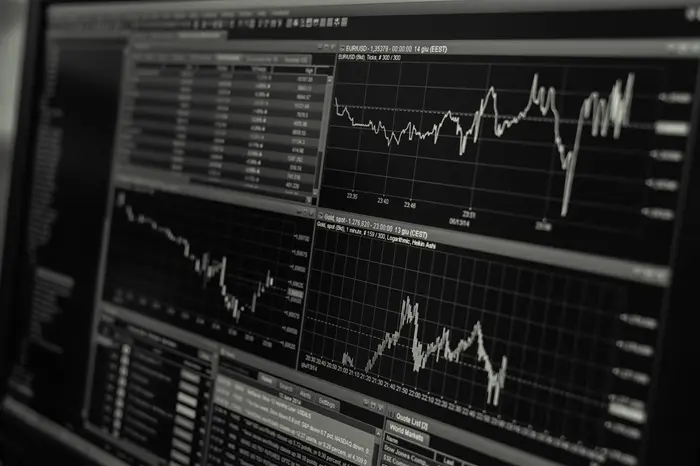The stock market is an integral part of the global financial system, providing a platform for companies to raise capital and for individuals to invest in their growth. Over the centuries, stocks have become a fundamental component of the economy, with billions of dollars traded every day. But where did the concept of stocks first emerge? How did the idea of selling ownership shares of companies evolve into the complex global markets we see today?
In this article, we will explore the origins of stocks, tracing their creation, development, and the first institutions where stocks were traded. We will also look at the key events and milestones that contributed to the rise of the stock market as we know it. By the end of this article, readers will have a clearer understanding of where stocks were first created and how they have evolved over time.
The Origins of Stock Trading
The Concept of Shares and Ownership
The idea of stocks—or ownership shares in a company—can be traced back to the Middle Ages. Long before modern stock exchanges existed, merchants and traders began to pool resources to finance voyages, trade expeditions, and business ventures. In many cases, these business ventures would be too large for a single individual to fund, and thus, the need for shared ownership arose.
During this period, individuals who provided capital to a venture in exchange for a share of the profits were effectively creating early forms of stock. This concept of shared ownership was the precursor to the modern stock market. However, these early forms of stock were not traded on a formal exchange, and ownership records were maintained privately.
The Rise of Joint-Stock Companies
The true precursor to the modern stock market emerged during the 16th and 17th centuries, when joint-stock companies became common in Europe. These companies allowed investors to pool their money together and share in the profits or losses of the venture. The most famous example of this early model of stock trading is the Dutch East India Company.
The Dutch East India Company was established in 1602, and it is widely considered to be the first company to issue publicly traded shares. The company was formed to manage trade between the Netherlands and the East Indies (now Southeast Asia). The company issued shares to the public, and these shares could be bought and sold among investors, laying the foundation for the stock market.
The Role of the Dutch East India Company
The Dutch East India Company was one of the first companies to offer publicly traded stocks, but it was also a major player in the history of modern finance. The company was granted a monopoly on trade in the East Indies by the Dutch government, making it a highly valuable enterprise. To finance its operations, the company sold shares to the public, allowing ordinary individuals to become investors.
The shares of the Dutch East India Company were traded on a market in Amsterdam, which was established for the purpose of facilitating these transactions. This market, known as the Amsterdam Stock Exchange, became the first official stock exchange in the world. The exchange allowed investors to buy and sell shares of the Dutch East India Company and other joint-stock companies, and it played a critical role in the development of stock trading.
The Amsterdam Stock Exchange was revolutionary in that it allowed the concept of stock trading to move beyond private transactions to a more public and formalized process. This exchange became a model for other markets, and its success helped to establish the foundation for modern stock exchanges.
The Evolution of Stock Markets
The Growth of Stock Trading in Europe
As the idea of joint-stock companies spread across Europe, other countries followed in the footsteps of the Netherlands. The London Stock Exchange, for example, was formally established in 1801, although stock trading in London had been taking place in informal settings for decades prior. The London Stock Exchange became one of the largest and most important financial centers in the world, and it played a crucial role in the development of global financial markets.
Other European countries, including France, Germany, and Spain, also saw the creation of their own stock exchanges during the 17th and 18th centuries. These exchanges helped to establish stock trading as an essential part of the global economy, providing a mechanism for companies to raise capital and for individuals to invest in those companies.
The United States and the Birth of the New York Stock Exchange
In the United States, stock trading began in the late 18th century. The first official stock exchange in the U.S. was the Philadelphia Stock Exchange, which was founded in 1790. However, the New York Stock Exchange (NYSE), which was established in 1792, would go on to become the largest and most influential stock exchange in the world.
The creation of the NYSE was the result of a series of events that brought together a group of stockbrokers and merchants. In 1792, 24 stockbrokers signed the Buttonwood Agreement, which established the foundation for the NYSE. The stock exchange initially operated out of a small room on Wall Street, but it quickly grew as the demand for stocks and bonds increased.
The NYSE allowed companies to raise capital by issuing stocks to the public and provided a platform for investors to buy and sell those stocks. The exchange became a major financial hub, and by the 19th century, it had become the center of the U.S. stock market. The NYSE played a key role in financing the growth of American industry, and it continues to be a major player in global finance today.
The Globalization of Stock Markets
Over time, stock markets became increasingly globalized, with exchanges in countries around the world connecting to one another. The creation of international stock indices, such as the Dow Jones Industrial Average (DJIA) in the U.S., and the FTSE 100 in the U.K., helped to bring attention to global market movements.
As financial markets became more interconnected, investors were able to access stocks from a wide variety of countries. This globalization of stock trading opened up new opportunities for investors and allowed capital to flow more freely between countries. Today, investors can buy and sell stocks on exchanges in virtually every part of the world, from New York to Tokyo to London.
The Impact of Technology on Stock Trading
The Rise of Electronic Trading
With the advent of technology, stock markets have undergone a dramatic transformation. In the late 20th century, electronic trading systems began to replace traditional floor-based trading, allowing for faster and more efficient transactions. Today, most stock trading occurs electronically, and investors can buy and sell stocks through online brokerage accounts.
Electronic trading has made it easier for individuals to participate in the stock market, as they no longer need to go through a stockbroker or trade on a physical exchange. The rise of online brokerage platforms has democratized access to the stock market, enabling anyone with an internet connection to become an investor.
High-Frequency Trading and Algorithmic Trading
In recent years, the stock market has seen the rise of high-frequency trading (HFT) and algorithmic trading. These trading strategies involve using advanced computer algorithms to execute trades at extremely high speeds, often in milliseconds. HFT has become a significant part of modern stock markets, accounting for a large percentage of daily trading volume.
While high-frequency trading has made markets more efficient, it has also raised concerns about market volatility and the potential for systemic risk. Some critics argue that HFT can lead to market manipulation, while others believe it contributes to the overall instability of financial markets.
The Future of Stocks and Stock Markets
The Role of Cryptocurrencies and Digital Assets
In recent years, the rise of cryptocurrencies and digital assets has added a new dimension to the world of finance. Cryptocurrencies like Bitcoin and Ethereum operate outside of traditional stock exchanges, offering investors an alternative to stocks. These digital assets have gained popularity due to their decentralized nature and the potential for high returns.
As cryptocurrencies continue to grow in popularity, traditional stock markets may face increased competition. Some financial experts believe that cryptocurrencies could eventually replace stocks in certain areas, while others argue that the two markets will coexist. The future of stocks and stock markets will likely be influenced by the ongoing development of digital assets and blockchain technology.
The Continued Evolution of Global Markets
As the world becomes more interconnected, stock markets will continue to evolve. New technologies, such as artificial intelligence, machine learning, and blockchain, will likely play a significant role in shaping the future of stock trading. These technologies could lead to even more efficient markets, where trading decisions are driven by advanced algorithms rather than human intuition.
Additionally, global economic shifts and changes in investor preferences could impact the structure of stock markets. As emerging markets continue to grow, they may take on a larger role in global stock trading, further diversifying the types of investments available to investors.
Conclusion
Stocks were first created as a means of financing large ventures, allowing individuals to pool their resources and share in the profits or losses of a business. The concept of stocks evolved through the establishment of joint-stock companies, with the Dutch East India Company being one of the first to issue publicly traded shares in 1602. This laid the groundwork for the creation of formal stock exchanges, such as the Amsterdam Stock Exchange and the New York Stock Exchange.
Over time, stock markets have grown to become a central part of the global financial system, providing opportunities for both companies and investors. As technology continues to shape the future of finance, stock markets will likely undergo further transformations, making it easier for people around the world to invest in stocks and participate in global financial markets. Understanding the history of stocks and their creation provides valuable insights into the evolution of modern finance and the continued growth of financial markets worldwide.
Related topics:


































